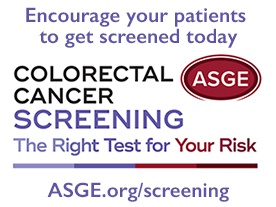The Physicians Foundation, a nonprofit organization that seeks to advance the work of practicing physicians, recently released the findings of its 2018 survey of U.S. physicians. The new survey includes responses from almost 9,000 physicians across the country and underscores the overall impact of numerous factors driving physicians to reassess their careers.
Dr. Gary Price, president of the Physicians Foundation and past president of the Connecticut State Medical Society, talked to us about what these findings mean.
Q: Physician burnout has been an issue the Physicians Foundation has been monitoring for years in its biennial surveys. What’s changed in this year’s results?
Dr. Price: Unfortunately, physician burnout is on the rise. A stunning 78 percent of physicians say they experience feelings of burnout in their medical practices. To give you context, in our 2016 survey results this number was at 74 percent, so we see this figure climbing.
It’s truly alarming that more than three-quarters of physicians are experiencing burnout, particularly because it is causing many physicians to reassess their careers. Forty percent of our survey respondents plan to either retire in the next one to three years or cut back on hours. Equally distressing, 46 percent say they plan to entirely change career paths within the next three years.
Physicians have been silently coping with this burden. It is far past time to do something meaningful to change this negative trend.
Q: What factors are driving burnout among physicians?
Dr. Price: Physicians responding to our survey report that the chief culprit contributing to feelings of burnout is the frustration they feel with the inefficiency of electronic health records (EHRs) followed by the burden of regulatory and insurance requirements. All of these have intruded on their time to care for their patients, without significantly improving the quality of that care.
If the healthcare industry does not confront the significant challenges caused by the inefficiency of EHRs and excessive burden of regulatory and insurance requirements, physicians will continue to experience increasing burnout symptoms – which, in turn, will exacerbate the physician shortage already felt in many areas of our country, and needlessly prolong the sometimes tragic consequences of burnout.
Q: Do physicians feel able to instigate changes to help alleviate these feelings of burnout?
Dr. Price: Only 10 percent of physicians who took our survey feel they have the power to impact the healthcare system. The perspective of physicians needs to be at the forefront of discussions around healthcare policy and regulation. Physicians are on the front lines of healthcare every hour of every day, and ultimately are held responsible for their patient’s outcomes.
The Physicians Foundation strives to focus and amplify the voices of physicians. Their insights will be critical to improving our healthcare system in a successful and sustainable way. Physicians need to feel empowered to contribute their ideas, and planners need to recognize the value of their input.
Q: A lot of people are talking about the influence of social determinants on healthcare outcomes. To what extent are factors like poverty impacting patient care?
Dr. Price: An overwhelming majority (88 percent) of physicians report that some, many or all of their patients are impacted by social determinants. In fact, only one percent of physicians taking our 2018 survey report that none of their patients have such circumstances.
Conditions such as poverty, unemployment, lack of education and addiction all pose a serious impediment to a patient’s health, well-being and their eventual health outcomes. These challenges directly impact a physician’s ability to deliver effective care.
Many physicians on our Board of Directors personally witness the impact of poverty among the patients they serve. Social determinants as they relate to healthcare have been a critical focus of the Foundation for several years now. We have made concerted efforts to address this vital area with like-minded individuals and organizations across the U.S.
While patients and physicians must work together to navigate the hardships that hinder proper care and drive up costs, it’s key that health policy experts and regulators actively acknowledge and engage with this issue. Simply ignoring it – or pretending it is not a factor in driving up costs while undermining outcomes – is no longer tenable.
Q: Many people dealing with social determinants that adversely affect their care are also patients who have been negatively impacted by the opioid crisis. To what extent has the opioid crisis changed the way that physicians practice medicine?
Dr. Price: Our survey results report that 69 percent of physicians are prescribing fewer pain medications in response to the opioid crisis. To put things in perspective, an opioid overdose was the cause of more than 60,000 deaths in 2017 alone – quadruple the number of deaths from an overdose since 1999.
There are many causes of this epidemic, and physicians are seriously engaged in efforts to reduce it, as well as untangle the multiple root causes of this major public health concern.
Q: Anything else we should know about the 2018 Physician Survey results?
Dr. Price: Physicians overwhelmingly agree (79 percent) that the most satisfying part of being a physician are the relationships with patients that they build across their career. We hope policy makers, healthcare influencers, media and other stakeholders will use the findings of our survey as a valuable resource to better understand the underlying challenges facing physicians and our healthcare system. This will allow all stakeholders to formulate more effective policies to advance the health and interests of patients through helping physicians focus on what they love and do best – care for patients.
To view the full results of the survey, visit https://physiciansfoundation.org/research-insights/the-physicians-foundation-2018-physician-survey/.
Click here to view state-specific data from physicians in Connecticut.

